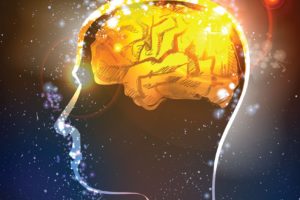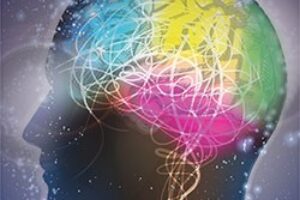To prepare for better days ahead, recharge 4 key brain hubs for a lively mind. Perhaps you have spent more time alone over the past year watching the news and coronavirus updates. Anxiety from new challenges and social isolation can slow your brain down.
It’s time for some mental spring cleaning. A quick check for each area can reveal where your brain might be less active, making your mind sluggish too.
HUB 1 PLACE: WHERE AM I?
Located in the right hippocampus, your place cells help you relate to your current environment. If you are an outdoorsy, active person, your place cells are probably vigilant. If you are an indoors, sedentary person and/or rely on GPS frequently, your place cells may be a little lazy.
Quick check: Close your eyes and point to north, south, east, and west.
If you can’t do this quickly or at all, your place cells could use some exercise. Strengthen your place cells by giving the GPS a rest. Find your way by looking at a map ahead of time and navigating with landmarks and street signs. Use GPS or another aid only if you get lost. This can be done with walking, hiking, bicycling, or driving.
HUB 2 TIME: WHAT TIME IS IT?
If you are an engaged, active person, the time cells in your left hippocampus are probably full of pep. If you spend hours sitting and staring into screens, your time cells may be in low gear.
Quick check: Close your eyes, think of the current time, and then see how accurate your guess was.
How did you do? If you can’t do this quickly and accurately (within 30 minutes), your time cells could use some exercise. Write the day of the week and date in a journal every morning, along with a few notes about what you learned and accomplished yesterday and hope to learn and accomplish today. Also, look at a wristwatch, desk or wall clock frequently. Avoid using a digital or electronic device unless it has a clock face on it.
HUB 3 ME: WHAT DO I FEEL?
Body awareness arises from the posterior cingulate cortex/parietal lobe. Being aware of your emotional state requires you to attend to what goes on in your mind while alone, and how emotions affect the way your body feels.
Quick check: Close your eyes and assess your current emotional state. Then identify the category that is most similar to how your feel, or come up with another one.
- Fear: feelings of being afraid, frightened, scared.

- Anger: feelings of annoyance, hostility, rage.
- Sadness: feelings of loss, sorrow, grief.
- Disgust: feelings of revulsion, strong disapproval.
- Joy: feelings of happiness, gladness.
- Surprise: feelings of being startled, unprepared for something.
- Trust: feelings of admiration, confidence, hope about someone.
- Anticipation: feelings of curiosity, excitement, hope about the future.
If you can’t do this quickly or at all, your body awareness cells may need a boost. Negative emotions can lead the mind to “tune out” the body, sometimes creating physical unawareness. Here are several ways to strengthen your emotional and physical self-awareness:
- Body scan: A mindfulness-training technique to perceive physical sensations through a gradual sequence from feet to head.
- Box breathing: A quick-and-easy technique from the Navy Seals to calm the mind.
- Walking: A reliable, remedy for calming the mind and energizing the brain.
- Yoga: Uses movements and breathing exercises to strengthen mind-body awareness.
HUB 4 WE: WHO CARES ABOUT ME?
Social awareness arises from the anterior cingulate cortex/frontal lobe. Strong interpersonal relationships require you to attend to the desires, intentions, and motivations of other people.
Quick check: Identify five people you could trust to discuss personal threats such as financial or legal problems, a life-threatening illness, or relationship problems.
If you can’t do this quickly, or at all, you could be at risk for social isolation. All too often, people allow social conflicts from long ago or weak modelling of social skills during childhood to corner them in social isolation. Here are several ways to strengthen your listening and social awareness (theory-of-mind) skills:
- Discussion group: Listen carefully to the perspectives of others on a shared experience, such as reading the same book, seeing the same movie, or attending the same theatrical production. Compare their perspectives to your own.
- Novels: Make notes about the desires, intentions, and motives of the main characters, and try to guess what they will do next to achieve their aims.
- Personality type: Take a personality assessment and learn the key ways in which you might be inclined see experiences, and how your drivers compare to other types.
- Songs: Listen to a song from any genre you prefer. Write down how the song makes you feel during the beginning, middle, and end of the song.
- Stand-up comedy: Watch stand-up comics perform on videos. When you or others laugh, write down why something was funny.
If you recharge these 4 key brain hubs, you will tap into mighty biological mechanisms for a lively mind. You will finish this pandemic better off than when you started it. People will seek you out to enjoy your company. Go for it!
For additional tips on a lively mind, visit www.brainwealth.info.







